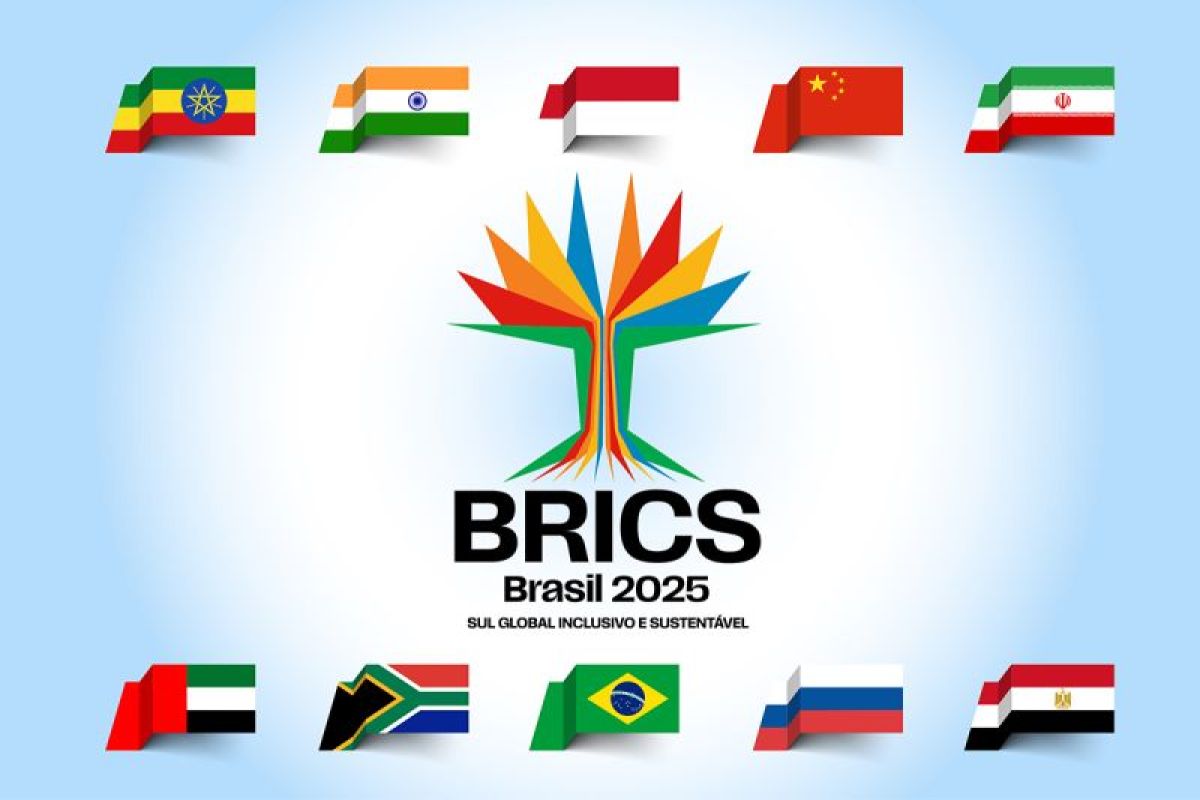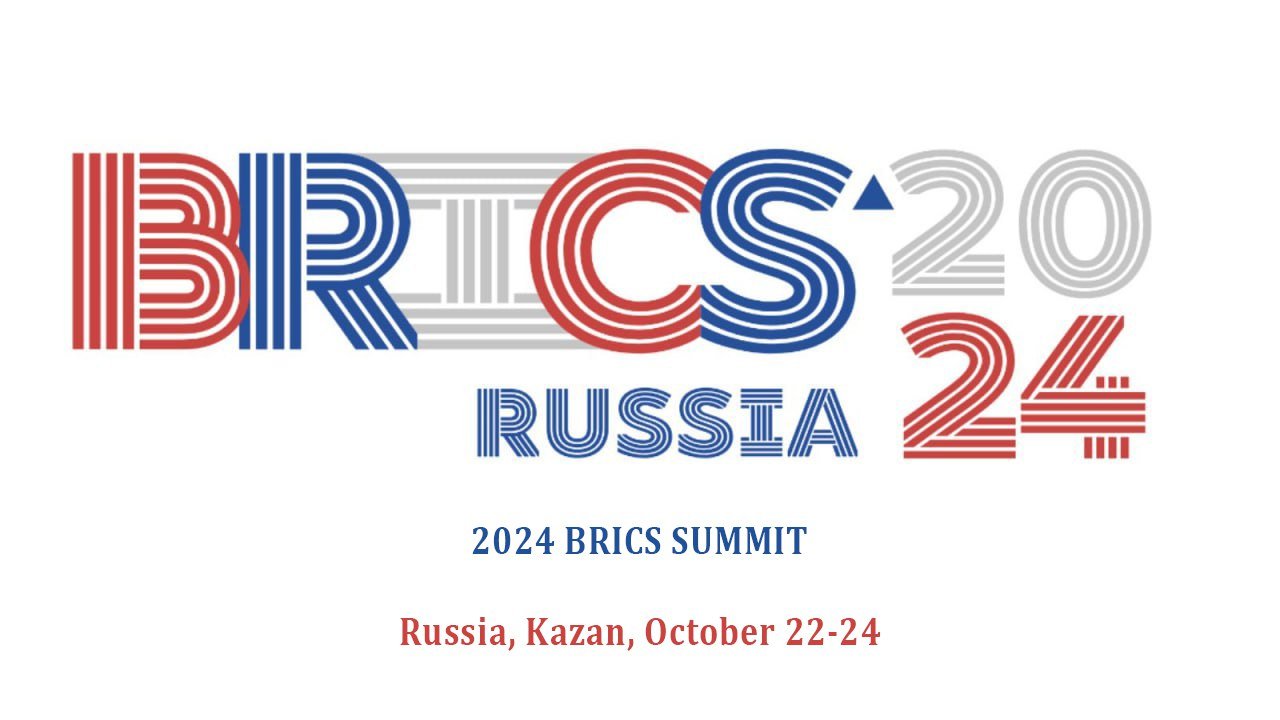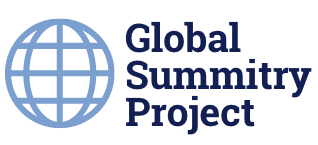What is the BRICS Summit?
The term BRICs was apparently first coined in 2001 by the then Goldman Sachs chief economist, Jim O’Neil. This acronym stands for the longstanding five members states: Brazil, Russia, India, China, and South Africa. South Africa rounded out the original five members with its welcoming to the collective in 2010 as the smallest member economically and in terms of population. The BRICS provides an Informal where these member states can collectively act and in many instances, as the members perceive it, challenge the Western dominated global order. These countries together account for about 40 percent of the world’s population and a quarter of the global economy. The members focus on topics relating to economic cooperation, improved multilateral trade and development and they operate under consensus. All five original members, additionally, are members of the G20.
Recent Developments
Talk of a New Currency?
During the recent South African Summit, President Lula of Brazil called for the BRICS nations to introduce their own common currency for trade and investment amongst themselves and at the same time reduce members and other Global South countries’ vulnerability to US dollar exchange rate fluctuations. The other member nations did not offer overwhelming support for this proposal. Russia supported such currency actions, for rather obvious reasons. South Africa expressed disinterest and China did not comment. There are many challenges to adopting a common currency. Some of these include: the need to establish a banking union and fiscal union as well as a market convergence which is difficult due to the vastly different economic, geographic and political conditions of these nations; as well, there is the issue of providing and upholding an accountability system for nations that do not ‘behave’. Overcoming these hurdles suggests, at least for the present, a limited threat to the US dollar dominance. Currently BRICS nations do not have the capital to contribute to such a major project and contribute capital to other BRICS if required.
The Challenges of New Members
Following the recent South African BRICS Summit, the BRICS states announced that six countries had been offered membership in the BRICS. These countries include: Argentina, Ethiopia, Iran, Saudi Arabia, Egypt, and the United Arab Emirates. These likely new member countries, if they accept, will become full members starting January 1, 2024. President Xi Jinping, of China, sounded hopeful for the expansion stating, “[…] the expansion is […] a new starting point for BRICS cooperation. It will bring new vigour to the BRICS cooperation mechanism and further strengthen the force for world peace and development.” Indian Prime Minister, Narendra Modi, shared this sentiment saying, “India has always supported the expansion of BRICS. India has always believed that adding new members will strengthen BRICS as an organization.”
The addition of new members seems to run the risk of adding yet more diversity of views for the BRICS summits. All the original BRICS are already G20 members. Now, of the expanded six, Argentina and Saudi Arabia are also members of the G20. With the addition of these six new members BRICS now represents 42 percent of the global population and 36 percent of the global GDP. This growth gives the organization a very powerful stance against what is perceived as Western domination in the Informals, particularly, the G7 and also in the much larger and more diverse G20. . However, the vast geopolitical and strategic political differences hinders consensus.
For each founding state, the expansion holds a different strategic significance. For China, for example, the expansion was a major win as it will force the US to reconsider its adversarial relationship as its allies western friendly Brazil and India are now with competitors China, Russia, and now Iran. Economically, however, the expansion means that its members are likely to hold each other’s currencies as trade intragroup trade ramps up. Secondly, while China has sought to challenge the power of the G7, the addition of these new members has functionally brought the BRICS closer to a G20 ‘doppelganger’.
In the case of India, it faces tension from both the US and its fellow BRICS member Russia as it tries to maintain important oil and defence deals. In the wake of the new additions, India also reaffirmed its founding role in BRICS – as well as to challenge Chinese attempts at dominance–by proclaiming itself as the “voice of the Global South”. The presumed trouble for India it seems stems particularly from the addition of Iran which fortifies the anti-Western sentiment within the BRICS and saddles them with another country facing US sanctions. On the other hand, India has enjoyed a increasingly amicable relationship with Saudi Arabia and the UAE who also are likely to join.
Brazil was openly against the expansion but accepted eventually the Chinese agenda. Brazil, |is struggling to maintain its salience on the global stage as well as a neutral party between the United States and China. As a result Brazil found itself, seemingly, disadvantaged by the expansion.
South Africa’s role in the BRICS is largely symbolic given that South Africa remains the smallest and least economically powerful member. For South Africa it is likely that new members only likely diminish its gravity in the organization especially in comparison to the two new African nations–Egypt and Ethiopia–who, despite their size have experienced far more economic growth than South Africa recently.
Finally, Russia’s membership in the BRICS now represents an important feature for Russia to demonstrate that it is not internationally isolated. The expansion helps to further show that Russia is indeed not isolated. Russia’s agenda includes increasing trade amongst its Global South partners which Putin himself has proposed. Russia is also hoping that the recent expansion will embolden the BRICS to finally be a significant political and economic force to challenge Western global dominance.
For each founding nation the expansion has both positive and negative impacts presumably. Time will tell exactly what the impact of the BRICS+ expansion will prove to be on the international system.
Notable Financial System
New Development Bank
The New Development Bank (NDB) is multilateral development bank organized and run by the five BRICS member states. The main purpose of the NDB is to lend capital for infrastructure projects. The BRICS in 2014 announced that the Bank had the capacity to lend authorized sums of up to $34 billion per year. The NDB officially moved its permanent headquarters to Shanghai in 2021 and it also has an African branch based out of South Africa. The NDB has a starting capital of $50 billion with each member state contributing $10 billion each at the beginning of the NDB’s establishment. Since 2021, three new countries have joined the bank including Bangladesh, the United Arab Emirates and Egypt, each contributing the $10 billion paid-in share. Uruguay is currently in the process of joining, while several other nations have expressed interest in membership as well, including Algeria, Honduras, Zimbabwe, and Saudi Arabia.
Some other notable milestones highlighted on the NDB’s website include it’s growth of the capital reserve to about $100 billion since its establishment in 2014. As of 2020 the NDB has contributed to 53 projects worth about $15 billion. The India Regional office was established in 2022 in Gujarat International Finance Tec-City. In the same year the NDB General Strategy for 2022-2026 was approved by its board of governors.
BRICS Contingent Reserve Arrangement
The BRICS Contingent Reserve Arrangement (CRA) is a system designed to protect the member states from global liquidity pressures, provide mutual support in the event of currency crises, and strengthen financial stability. The CRA was established in 2015. The CRA could also be used to address short-term liquidity issues during which a country could temporarily run out of foreign currency and need the CRA to bail a member out. The CRA is comprised of a pool of about US$ 100 billion via currency swaps with China contributing US$41 billion, Brazil, Russia and India, US$18 billion each, and South Africa US$5 billion. So far, the CRA has yet to be called on by any of its members, but this could change given the war in Ukraine as well as the addition of six new countries to the BRICS organization. The NDB is also now facing sanctions as a result of Russia’s, war against Ukraine.
There are many moving parts given the war in Ukraine and the expansion of the BRICS by six members with vastly different political and economic agendas. The future saliency of the BRICS will be determined in the next few years and time will reveal whether this Informal is an alternative global power group or even a legitimate threat to the status quo for the perceived western dominated system.
What is MIKTA?
MIKTA is an informal group of G20 countries. MIKTA consists of: Mexico, Indonesia, South Korea, Turkiye and Australia. All represent Middle Powers (MP). MIKTA is a cross-regional consultative platform to bridge, according to the member states, the divides between developed and developing states and build consensus for cooperation on global governance challenges. The MIKTA MPs represent geographically and culturally diverse nations that are committed to collaborating and contributing to international forums and the multilateral system. MIKTA also serves as a facilitator for initiatives on implementing global governance reform.
MIKTA was established in New York in September 2013 in a foreign ministers’ meeting on the margins of the High Level Week of the UN General Assembly. In May 2015, in Seoul, MIKTA released its Vision Statement. The group noted how, on the one hand, new issues have emerged to challenge the stability of the international community. On the other hand, the global dispersion of power has changed, with the rise of regionalism and increasing presence of non-state actors. Together, these trends fuel the need for innovative partnerships to address the emerging global governance challenges. This prompted the formation of MIKTA.
MIKTA’s cooperation is held together by its members’ shared core values and positions as MPs on the global stage. Mexico, Indonesia, South Korea, Turkiye and Australia consider themselves as democracies that benefit from open economies with robust growth rates, which affords them “a significant level of economic power”. The states are also strategically located and strongly linked in their respective regions.
MIKTA has focused on a range of issues, with its “enduring priorities” being: energy governance, counterterrorism, trade and the economy, good governance and democracy, sustainable development, gender equality, and UN peacekeeping operations. Seeing the opportunity to exert greater influence on international issues, MIKTA aims to: “work together to reduce the gap in polarized policy positions, advance discussions on global issues in multilateral forums, and strive to find pragmatic and creative solutions to regional and global challenges”. Its core activities include: joint projects to enhance information-sharing and exchanges and joint efforts to build international norms, developing guidelines, and sharing best practices to develop collective responses and set agendas on the global stage.
Following its inception in 2013, MIKTA gatherings consisted of meetings between foreign Minister, senior government officials, and national assembly speakers. The first MIKTA Leaders’ Gathering took place in 2023 on the sidelines of the G20 India Summit in New Delhi. The resulting Joint Press Statement expressed concern over the division in the world and emphasized the need to overcome differences to effectively dress common challenges. MIKTA members underscored their commitment to building understanding and consensus and defending the multilateral system. This first meeting signalled an increase in the importance of the informal forum for its members, and signalled greater initiative on the part of the MPs in light of a Summit where consensus was hard fought.
MIKTA demonstrates the response by the international community to the perceived ineffectiveness of the current multilateral order, which has struggled due to geopolitical conflict and tensions between the US and China. In the absence of broad-based consensus in the international political fora, MPs are collaborating to both increase their power on the global stage, as well as address issues more immediate to them by exchanging ideas with other states in a similar position.
- BRICS+
- MIKTA
- Archive

The Ranks of BRICS Build
In January 2025, the BRICS presidency rotated to Brazil. Soon after, Brazil announced that nine countries would join the new ‘Partner’ category created during the bloc’s Kazan meeting. Partners are not full members, but can participate in BRICS meetings and programming. As of January 2025, the BRICS partner members are: Belarus, Bolivia, Kazakhstan, Cuba, Malaysia, Nigeria, Thailand, Uganda, and Uzbekistan. That same month Indonesia rose to become a full BRICS member, becoming the Bloc’s tenth country to achieve the rank.
With its new members, BRICS now accounts for 46 percent of global GDP and 55 percent of the world’s population.

The BRICS Kazan Declaration, summarized
On October 23, 2024 the BRICS+ concluded its annual meeting by adopting the Kazan Declaration, a 43-page document written on the theme of “Strengthening Multilateralism for Just Global Development and Security”. The document reiterates the bloc’s support for multilateralism and covers a host of topics, from geopolitics and international conflicts, to artificial intelligence and the status of big cats.

Brick by BRICS: Russia hosts expanded membership at Kazan summit
One of the world’s largest economic blocs, BRICS+, gathered in the Russian city of Kazan from October 22nd to 24th. The meeting saw the group’s core membership —Brazil, Russia, India, China, and South Africa — welcome four new members: Egypt, Ethiopia, Iran, and the United Arab Emirates (UAE).
The BRICS+ meeting is a challenge to the attempts of Western powers to isolate Russian President Vladimir Putin over the war in Ukraine. No matter how bruised and battered by sanctions and the invasion of Ukraine grinding into its third year, Putin remains a significant ‘revisionist’ player in the informal organization seeking to shape the emergent multipolar world. Putin’s presence flouts the desires of powers like the U.S. and signals BRICS+ as an independent, if not altogether coherent, alternative to the likes of other Informals, the G7 and even possibly the G20.
